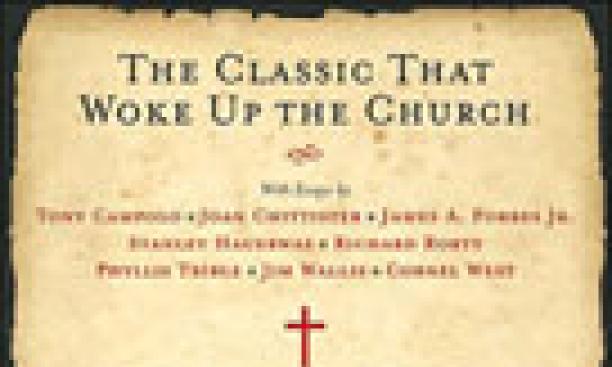

In 1886, the young Baptist preacher Walter Rauschenbusch embarked on a harrowing 11-year ministry on the edge of the impoverished Hell’s Kitchen neighborhood of New York City. The job undermined his health — his grueling workload brought on an illness that worsened his growing deafness — but it also inspired Christianity and the Social Crisis, the book that helped launch the Christian social-justice movement known as the Social Gospel.
“This book was born out of an intense encounter with poverty,” says Paul Raushenbush, Princeton’s associate dean of religious life and Walter Rauschenbusch’s great-grandson. “People around you are dying because of the incredible suffering that the system around them is enforcing, and you have to go back and say, well, what does the Bible say about that?”
To mark the book’s 100th anniversary, Raushenbush, a Baptist minister, has edited a new edition, Christianity and the Social Crisis in the 21st Century: The Classic That Woke Up the Church, published by HarperOne last summer. The reissue pairs the original 1907 text with commentary by eight contemporary thinkers, including Cornel West *80, the Class of 1943 University Professor in the Center for African American Studies at Princeton.

The original version was a hot seller in its day, inspiring later generations of mainline Protestants to embrace liberal reforms, from abolishing child labor to ending racial segregation. With the religious right now politically influential, Paul Raushenbush (the family Americanized its name after World War I) says he wanted his great-grandfather’s ideas “reintroduced into the public conversation about the role of religion.”
Walter Rauschenbusch argued that Jesus was a revolutionary thinker whose promised “kingdom of God” must be realized not only in heaven but also here on earth, through more egalitarian social relations. The conditions in early 20th-century American cities — overcrowded tenements, dangerous factories, polluted air — demanded a political response from Christians who took their faith seriously, Rauschenbusch insisted.
For the new volume, Paul Raushenbush chose commentators whose work draws on the Social Gospel tradition, including evangelicals Tony Campolo and Jim Wallis; theologian Stanley Hauerwas; and the philosopher Richard Rorty, a grandson of Walter Rauschenbusch and cousin of Paul Raushenbush who died in June.
While praising Rauschenbusch for his idealism and commitment to social justice, the contributors also note troubling currents in his thought: his denigration of Judaism and Catholicism, his racial insensitivity, and his Victorian attitudes toward women. Over the years, more conservative critics have called Rauschenbusch’s theology little more than prettified Marxism, lacking Christianity’s conceptions of sin, atonement, and redemption.
“Rauschenbusch’s gospel had little need of a savior. It merely displaced the problem of evil — the supreme tragedy of the human soul in rebellion against God — with the challenge of social iniquities,” journalist Joseph Loconte wrote last May in a Wall Street Journal op-ed, one of several prominent articles inspired by the new edition. “It is hard to see ... how Rauschenbusch’s theology could be called Christian in any meaningful sense of the term.”
Although Paul Raushenbush, the first of Walter Rauschenbusch’s descendants to follow him into the ministry, acknowledges the datedness of some of his great-grandfather’s social attitudes, he disagrees with such theological critiques. “Sin is actually something that’s ingrained in the structure of society, and so sin is something that an entire community can repent of,” Raushenbush says. “If we have so structured our society to benefit a few at the expense of the many and the powerful at the expense of the weak, then that is a structural sin.”
Raushenbush says he’s surprised by how personally he’s taking the criticism. After all, he was born nearly 50 years after Walter Rauschenbusch’s death and grew up knowing his illustrious ancestor mostly as the author of a prayer the family read on Thanksgiving.
The controversy proves that these century-old ideas still stir powerful emotions, Raushenbush says.
Deborah Yaffe is a writer in Princeton Junction, N.J., and the author of (Rutgers University Press).
